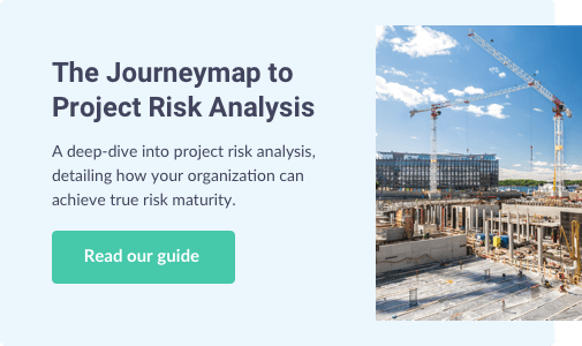Why Engaging Stakeholders is Critical When Managing Large Projects
In a world where the pace of change is the only constant, effective stakeholder engagement is indispensable. Stakeholder engagement is not merely a buzzword. It stands as a strategic imperative for organizations managing large and complex projects in multiple locales and is a necessary component of continual improvement in organizations.
Continual improvement may come naturally to dedicated project professionals. However, to overcome inherent inertia and the status quo bias, effective stakeholder management should be integral to an ongoing organizational change management (OCM) project. To maximize the benefits of any risk management initiative, it is imperative to launch a comprehensive OCM campaign that ensures a unified approach to positive change among all personnel, progressing at the same pace and in a shared direction.
Training is typically the first and foundational component of such an OCM project, designed to enhance the organization's risk culture. From the outset, achieving success necessitates meticulous stakeholder management and engagement, ensuring that the transition to a more agile and adaptive risk management approach is embraced at all levels.
In a world of constant change, successful risk management is not just a project; it's an ongoing organizational change management (OCM) initiative. To succeed, risk management must be viewed through the lens of OCM, ensuring that change is embraced throughout the organization and by all stakeholders on a project. Training for improving risk culture is often the first component of any OCM project. Clear and demonstrable leadership support for risk management initiatives from top to bottom is vital to gaining traction.
Key Considerations for Effective Stakeholder Engagement and OCM
Here are some key considerations for managing change and engaging stakeholders effectively:
- Stakeholder-Centric Culture: Cultivating a stakeholder-centric culture is essential. Ensure that your organization's leadership demonstrates a commitment to engaging stakeholders. When the "tone at the top" is correctly tuned, it becomes significantly easier for risk practitioners to involve stakeholders and gather high-quality data.
- Streamlined Processes: The risk management process should be applied in an environment that supports data-driven decision-making. Encourage a close-out process for projects to consistently capture and share relevant risk data. Implement performance metrics to track the value derived from your risk management program.
- Learning and Experience: Organizations should prioritize risk management understanding and training. Learning from shared experiences is equally important. Teams need access to personnel with meaningful risk management experience. By consistently capturing and sharing learning points, organizations can evolve into "learning organizations" and implement intelligent risk management strategies.
- Effective Application: To achieve risk policy goals, teams need the right tools and software to execute the risk management process effectively. These tools enhance risk identification, enable accurate risk quantification, and support timely risk response implementation.
How to Manage Stakeholders Effectively
Navigating change effectively means you must engage with stakeholders early and often. Dedicated stakeholder engagement requires the right tools and strategies so you can ensure you are prioritizing and managing critical project risks. Let Safran guide your organization in optimizing change management for the benefit of your entire team. Change isn't easy, but with the right approach, it can be a powerful driver of success.



